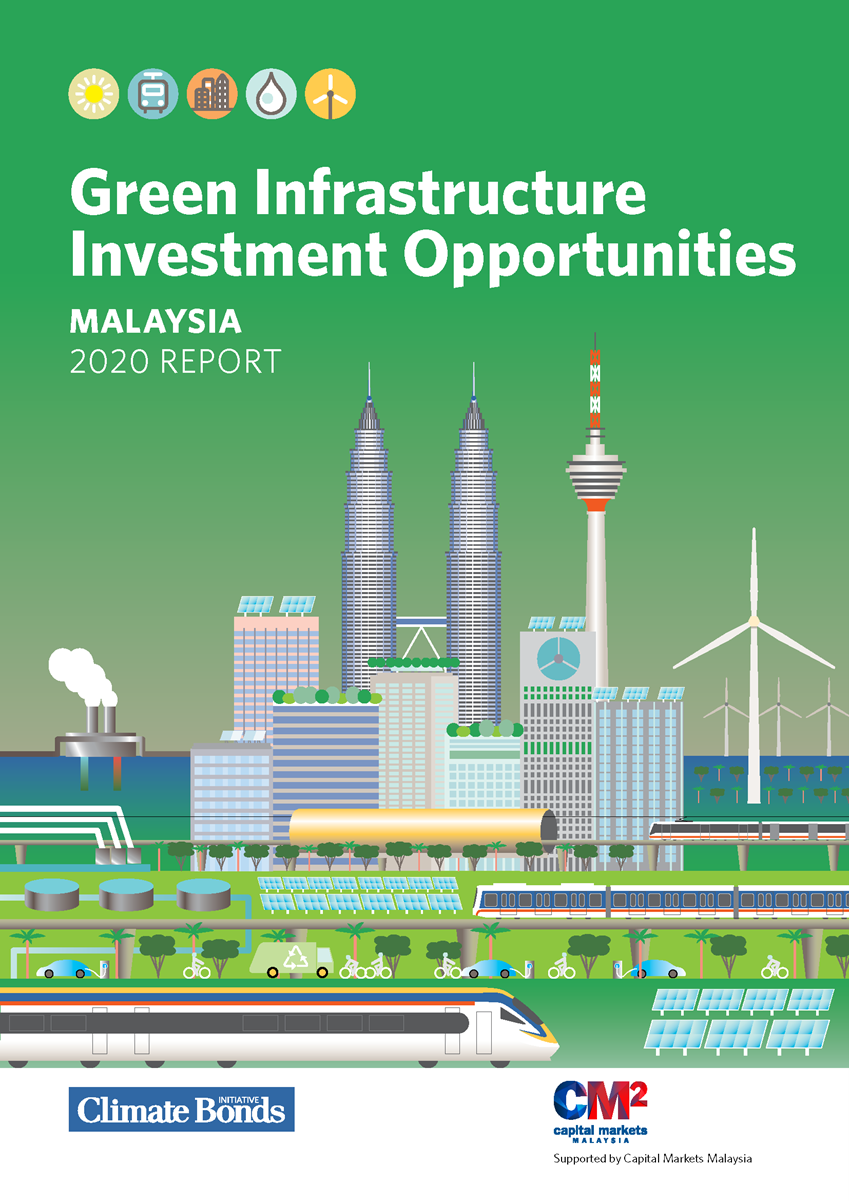
BIX ARTICLE
Green Infrastructure Investment Opportunities Malaysia 2020 Report
Apr 15, 2021
|
3 min read
Featured Posts
Social Bonds Illustrative Use-Of-Proceeds Case Studies Coronavirus
Jul 06, 2020
|
2 min read
Sustainable Banking Network (SBN) Creating Green Bond Markets
Jul 06, 2020
|
2 min read
Why is Inflation Making a Big Comeback After Being Absent for Decades in the U.S.?
Mar 24, 2022
|
7 min read
SC issues Corporate Governance Strategic Priorities 2021-2023
Mar 29, 2022
|
3 min read

It aims to facilitate greater engagement on this topic between project owners and developers, and institutional investors. Green infrastructure and corresponding green finance instruments are explored in the report, with sector-by-sector investment options presented.
The report is intended for a wide range of stakeholders, including domestic superannuation funds and asset managers and their global counterparts, potential issuers, infrastructure owners and developers, as well as relevant government ministries.
In developing this report, the Climate Bonds Initiative consulted with key Government bodies, industry, the financial sector, peak bodies, NGOs and think tanks – in partnership with Capital Markets Malaysia (link is external). We would like to thank these partners along with the other organisations that contributed to the report.
The report series commenced with the GIIO Indonesia report, launched in May 2018. The pipeline of GIIO reports being developed includes further exploration of opportunities in Asia-Pacific as well as in Latin America. You can access all of our GIIO content here.
Green infrastructure: an opportunity for growth
Malaysia has been one of the fastest growing economies in ASEAN with the third largest economy in Southeast Asia and the 35th largest economy in the world.1 The COVID-19 pandemic has put some pressure on the country’s prospects; however, economic growth is expected to rebound gradually in 2021-2022, as global conditions improve.2 The process of recovery from the COVID crisis needs to focus on building back better, by prioritising green infrastructure and nurturing a regulatory environment that facilitates green and innovative investment.
Climate change has already had significant adverse impacts on Malaysia, including increased annual surface temperature and rainfall, sea level rise, and other extreme weather events.3 The country is also facing declining natural resources and increasing greenhouse gas (GHGs) emissions due to intense energy consumption for its rapid growth.4
Scaling-up of investment in green infrastructure is critical for Malaysia to meet its climate commitments – including the Paris Climate Change Agreement - and build resilience to the impacts of climate change as well as to achieve rapid economic development. As a top priority for the current Malaysia administration, infrastructure development is being heavily supported and promoted in government. Malaysia has some of the most well-developed infrastructure among the newly industrialized countries in Asia.5 It also performs well on overall infrastructure quality globally, ranking 27th out of 141 countries in the 2019-2020 Global Competitiveness Report.6 Despite this, climate change and population growth will continue to put pressure on this infrastructure.
Currently, much of the investment in infrastructure in Malaysia is being carried out through public funding and Public Private Partnerships (PPP) ventures.7,8 However, public funding is not sufficient to meet the growing demand for green infrastructure; new channels will be necessary to mobilise private capital. Existing funding commitments made by the government may also be challenged by the current COVID pandemic and ensuing economic crisis, so access to capital markets will be key to growing green pipelines. Scaling up sustainable investment will depend on the Malaysian government’s level of commitment to greening the economy. Policies encouraging public investment in green infrastructure have the power to set Malaysia on a sustainable course for the long run - sending an important signal to the market and providing an opportunity for the country to access new capital.
Full Report: Green Infrastructure Investment Opportunities
Source: Capital Market Malaysia, Climate Bonds Initiative
YOU MAY ALSO LIKE
ARTICLE
Sep 29, 2025
|
6 min read
ARTICLE
Aug 12, 2025
|
6 min read
ARTICLE
Jul 29, 2025
|
3 min read
ARTICLE
Jul 25, 2025
|
8 min read


